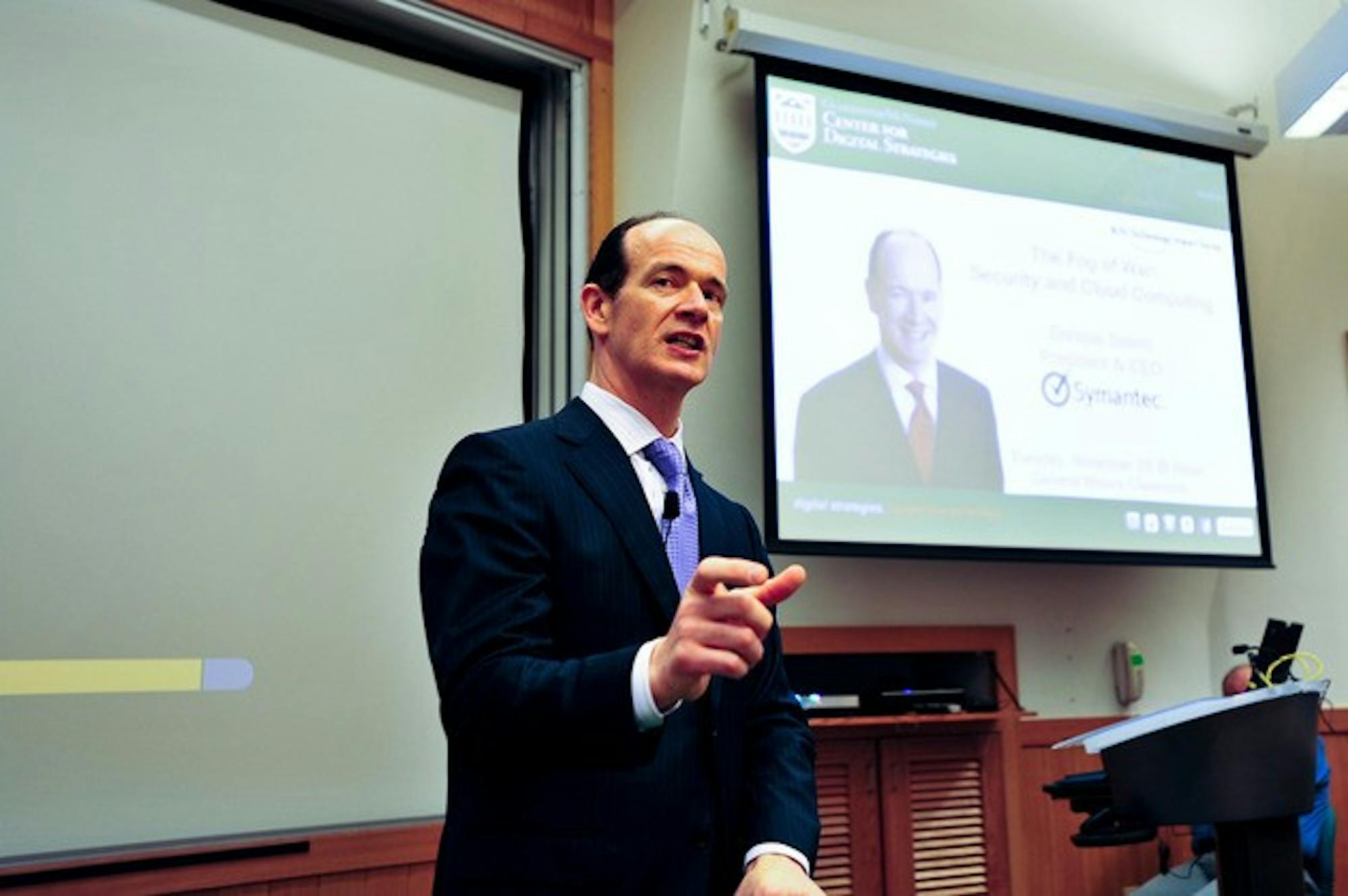Cloud computing, defined as a method of sharing information over a network such as the internet, is incredibly beneficial because it helps users better utilize online resources, Salem said.
"The cloud is absolutely the biggest change in IT in the last 30 years," he said. "It is absolutely transformative."
One of the greatest misconceptions regarding cloud technology is the belief that it is always less secure than other systems. When "done right," cloud computing can actually be "more secure," Salem said.
Implementation of the cloud, however, brings numerous challenges, including misaligned expectations among users, the need to comply with a set of standard rules and questions regarding who has access to various data systems, Salem said.
The problem with cloud computing lies not in the technology but "in the people" who utilize it, he said. When individuals share "the wrong information" online, such as personal credit card accounts, they become vulnerable targets.
"There isn't a simple answer to this problem," Salem said. "I'm not confident we can change user behavior."
Software programmers should work to develop technology that prevents individuals from making mistakes online that expose them to virtual attackers, Salem said. An "information-centric approach" that ensures people know what they can "put out there without creating unnecessary risk" is the first step toward making cloud computing safer for all users, he said.
The greatest obstacle to such an approach is that it is incredibly difficult to systematically categorize information according to whether or not it is safe to enter into the cloud, according to Salem.
"Computers struggle to be very good at knowing context [to] effectively categorize information," Salem said.
Salem cited recent "big trends" in technology such as virtualization, social media, communication mobility and "data explosion" that have accompanied cloud technology in impacting computer users' daily lives.
Social media has altered modern communication to the point that email has ceased to be efficient in various professional and social settings, Salem said. Facebook, Twitter and other social media sites will likely further impact daily communication in the future, he said.
"Chatter and other forms of social media will transform how we collaborate," Salem said.
Computer virtualization focuses on the efficient use of resources, Salem said. Computer systems currently operate relatively inefficiently and include a lot of "excess capacity," which present opportunities for future improvement through virtualization, he said.
Users' emphasis on and desire for increased mobility impacts daily interactions with technology and has resulted in "more smart phones being sold than PCs," Salem said.
The explosion in shared data has led to a corresponding increase in the number of threats to computers in the form of viruses or hacking incidences, according to Salem.
In the 1990s, hackers mostly used computer attacks to demonstrate that they were "smarter" than computers' security systems, Salem said. Attacks today are used as a tool for making money and for espionage, according to Salem.
During the question-and-answer session following the lecture, Salem addressed inquiries regarding working at security companies, improvements needed to protect against modern attacks and what challenges he faced as CEO of a major computer security provider.
Amanda McGrath, who said she attended the lecture because she works for a security software company, said the most interesting aspect of the lecture was the discussion of new technologies that emphasize mobility and the technological advancements needed to secure mobile networks.
The lecture, "The Fog of War: Security and Cloud Computing," was sponsored by the Center for Digital Strategies.




